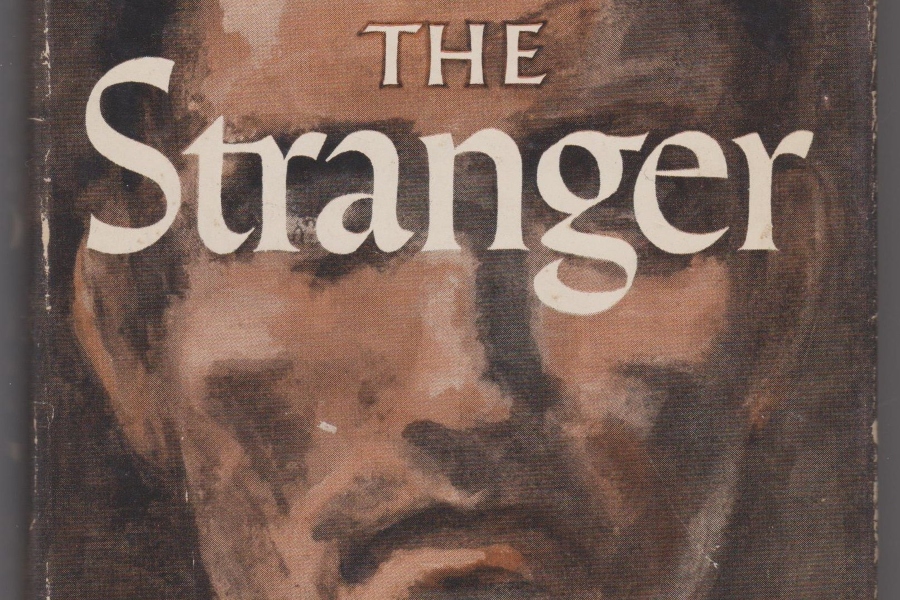Book Review: L’Étranger (The Stranger) by Albert Camus
Check out The Stranger, written by philosopher Albert Camus.
April 24, 2023
Albert Camus’ “The Stranger” is a thought-provoking and existential novel that challenges traditional notions of morality, human nature, and the meaning of life. Originally published in 1942, this classic work of French literature continues to captivate readers with its enigmatic protagonist and its introspective exploration of the human condition.
The novel is narrated by Meursault, a detached and indifferent man who seems to lack any emotional connection to the world around him. The story begins with the death of Meursault’s mother, and the subsequent events that unfold after her funeral. As Meursault navigates through his mundane existence, he encounters various characters, engages in peculiar situations, and becomes involved in a murder trial. Camus shows his expertise by some how making a murder trial appear mundane and almost boring through the eyes of Meursault. By no means is the book itself boring, but Camus’ depiction of the world through Meursault’s eyes is a colorless one and almost appears as an obligation to him. As the story progresses, Meursault’s unconventional behavior, his inability to conform to societal expectations, and his indifferent attitude towards life and death create a sense of unease and mystery which causes him problems in his trial.
One of the most compelling aspects of “The Stranger” is Camus’ portrayal of Meursault’s existential and absurdist outlook. Meursault is depicted as an outsider, disconnected from the norms and values of society, and detached from the emotional bonds that typically define human relationships. He rejects religious and societal conventions, challenging the idea of morality and the existence of a higher power. Meursault’s lack of emotional response and his passive acceptance of life’s absurdity reflect Camus’ philosophy of the absurd, which questions the meaning and purpose of life in an indifferent and chaotic universe. Camus expresses and explores these views very heavily towards the end of the book in the scene with Meursault and the priest.
Camus’ novella is beautifully written, creating a sense of detachment yet connection to the character and detachment that mirrors Meursault’s outlook. The novel’s concise and straightforward language, combined with its introspective and philosophical ideas, make for a compelling and thought-provoking read. The blatant contrast between Meursault’s indifference and the emotional responses of those around him, including the other characters in the novel, further highlights the novel’s themes of existentialism and the absurdity of human existence.
“The Stranger” is not a novel that provides easy answers or comforting conclusions. It challenges readers to question societal norms along with Meursault, examine the nature of existence, and confront the absurdity of life. It raises philosophical questions about the meaning of life, the nature of morality, the role of human emotions, and questions the creation/creator of the world and human consciousness. The novel’s reserved and complex protagonist, along with Camus’ skillful writing, leaves readers pondering long after the last page has been turned.
“The Stranger” is undoubtedly a thought-provoking and intellectually stimulating read for anyone who enjoys reading, but also for those who enjoy philosophy and absurdism. Camus’ exploration of the human condition through Meursault’s unconventional perspective is both haunting and confusing, challenging readers to confront their own perceptions of reality, morality, and the meaning of life. “The Stranger” is a timeless classic that continues to captivate and provoke readers to discover the depths of human existence. This book is undoubtedly one of the best books I’ve ever read. I would give this a 5/5 and would heavily recommend everyone to read this book, even if you aren’t interested in philosophies or French literature. If you like this book I’d recommend other Camus books like “The Myth of Sisyphus”, “The Plague”, and “A Happy Death”.







Tim • Aug 16, 2023 at 1:41 pm
One of the truly great literary masterpieces of World Literature, posing questions that may not have easy answers or any answers but questions worth pondering over again and again.